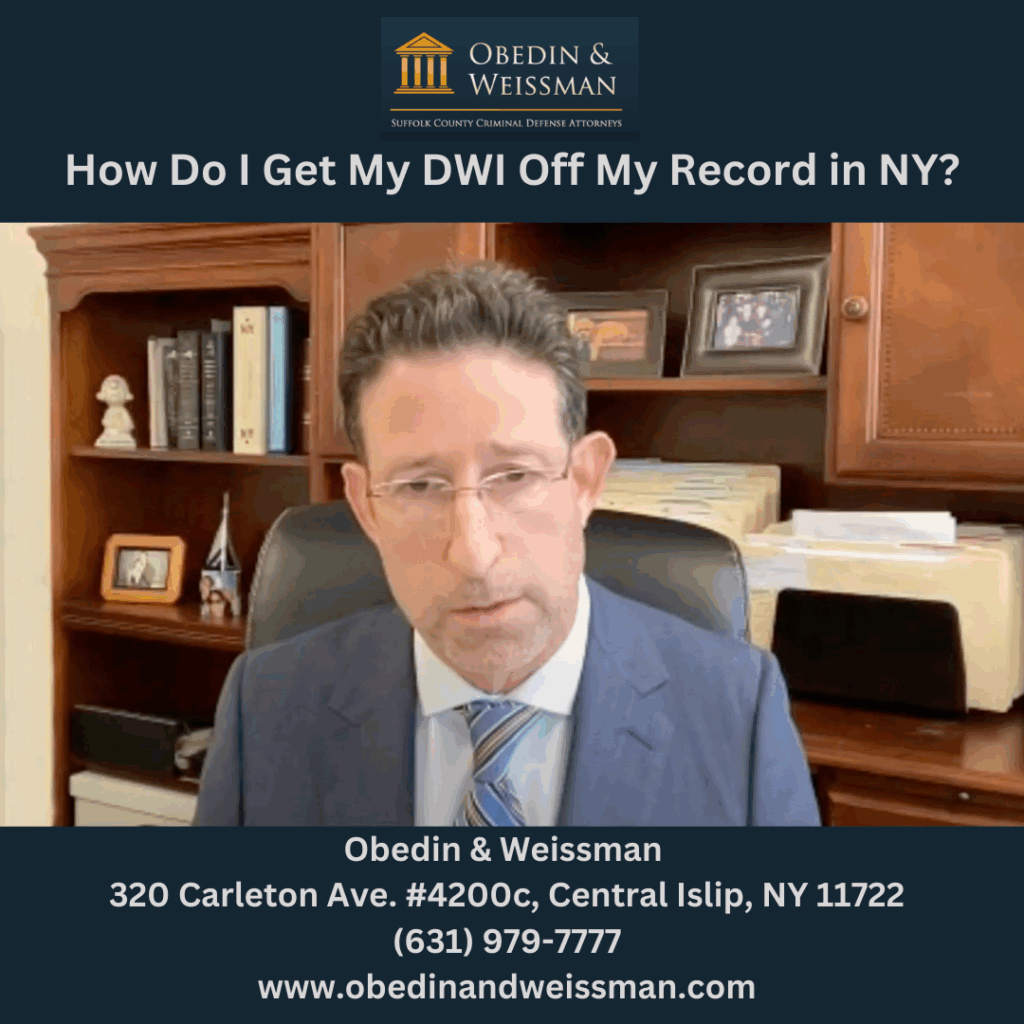If you’ve been convicted of Driving While Intoxicated (DWI) in New York, it’s natural to wonder if there’s a way to remove that conviction from your record. The answer used to be very discouraging—once you had a DWI on your record, it was there for life. But as of November 2024, that changed. Thanks to new legislation known as the Clean Slate Act, certain individuals convicted of DWI in New York may now qualify to have their records sealed—a major shift in how the state treats past convictions.
It’s important to understand, however, that having a DWI “off your record” doesn’t mean it disappears completely. The conviction does not get erased or expunged. What the Clean Slate Act allows is for the record to be sealed, meaning that most employers, landlords, and members of the public will no longer be able to see it during background checks.
What Is Record Sealing for a DWI in New York?
Record sealing is not the same as expungement. In New York, expungement is extremely limited and generally only applies to certain marijuana-related offenses. When a record is sealed, it still exists—but it becomes inaccessible to the general public. Law enforcement and certain government agencies may still be able to view it under specific circumstances, but most private entities will not.
For someone convicted of a DWI, this can be life-changing. A sealed record can help remove barriers to employment, housing, licensing, and other areas of life where a criminal conviction could create obstacles.
Requirements for Getting a DWI Sealed Under the Clean Slate Act
To have a DWI conviction sealed in New York under the Clean Slate Act, you must meet the following criteria:
-
Your conviction must be eligible under the law. A misdemeanor DWI is generally eligible. Felony DWIs may not qualify if there are aggravating factors.
-
At least 3 years must have passed since the completion of your sentence, including any probation or court-ordered programs.
-
You must have no new arrests or convictions during that 3-year waiting period.
-
No application is required—the sealing process is automatic as long as you meet the requirements.
This last point is critical. Under the Clean Slate Act, the sealing process is automatic once the waiting period is met and there are no disqualifying conditions. You do not need to petition the court or pay any fees. However, because this law is still relatively new, you should still monitor your record or consult with a legal professional to ensure the sealing process occurs as expected.
What the Clean Slate Act Does—and Doesn’t Do—for DWI Convictions
Here’s what you can expect if your DWI is sealed under the Clean Slate Act:
✅ Most employers will not see the conviction during a background check
✅ Landlords and private agencies will no longer have access to your criminal record
✅ The sealed record cannot be used against you in most housing or employment decisions
❌ The conviction is not erased—it still exists and can be used in court if you are ever arrested again
❌ Law enforcement, prosecutors, and certain licensing agencies may still access your sealed record in limited situations
So while you don’t get a completely clean slate in the literal sense, you do gain privacy and protection from most of the consequences that follow a public criminal record.
Why This Law Matters for People With a DWI Conviction
For years, New York residents with even a single DWI conviction had to live with the long-term effects of a public criminal record. It didn’t matter if they never got into trouble again. One bad decision followed them for life—affecting jobs, housing, and even educational opportunities.
Now, if you’ve stayed out of trouble and allowed enough time to pass, your DWI record will be sealed automatically. This gives people a true second chance—especially those who’ve made a mistake, accepted the consequences, and moved forward with their lives.
What to Do If You’re Not Yet Eligible to Have Your DWI Sealed
If your conviction is recent or you’re still within the 3-year post-sentencing window, there’s nothing to apply for just yet. But you should begin preparing:
-
Avoid any further arrests or legal issues during the waiting period
-
Complete all probation, court-ordered programs, or license requirements in full
-
Keep documentation of your progress and compliance
-
Consult with a criminal defense attorney to track when you’ll qualify for sealing
By staying on track and maintaining a clean record, you’ll ensure that you benefit from the Clean Slate Act the moment you become eligible.
Final Thoughts on Getting a DWI Off Your Record in NY
So how do you get a DWI off your record in New York? You don’t erase it—but you can have it sealed under the Clean Slate Act, as long as you meet the qualifications. For most people, this means:
-
It’s been at least three years since sentencing was completed
-
You’ve had no new arrests or convictions in that time
-
Your DWI was a qualifying offense, usually a misdemeanor
Once sealed, your conviction will no longer show up in most background checks and can’t be used against you by employers, landlords, or schools. It’s not total erasure—but it’s the next best thing, and it can make a meaningful difference in your future.
If you’re unsure whether you qualify—or if you have questions about your DWI record—contact Obedin and Weissman. We’ll help you understand your rights under the Clean Slate Act and make sure you’re in the best position to take advantage of the law. We’re available 24/7, and we’re here to help.


